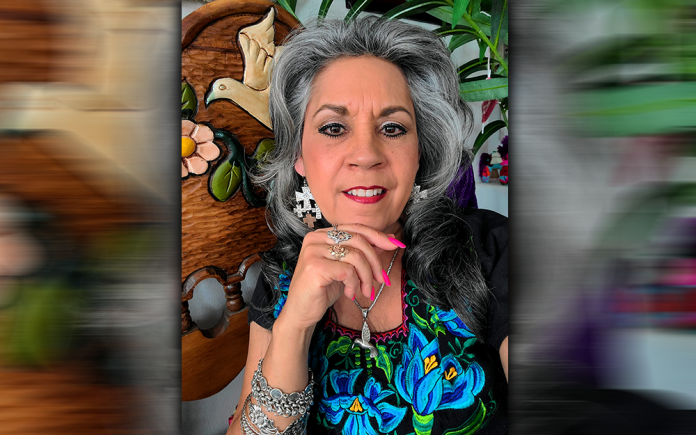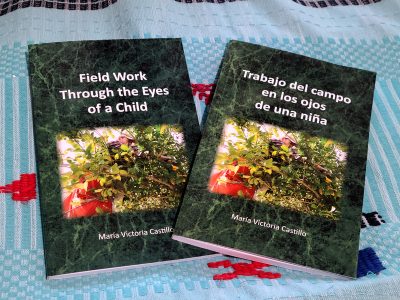
BY DEANN LUBELL
Photo credit: Maria Victoria Castillo
Maria Victoria Castillo, M.Ed, was born in Mexico. In 1952, her father came to the United States through the Bracero (Spanish for manual laborer) Program. The program was the result of a series of laws and diplomatic agreements initiated on August 4, 1942, when the United States signed the Mexican Farm Labor Agreement with Mexico. A year later, after Mariia’s father had arrived in the Coachella Valley, she and her five siblings and her mother immigrated here, as well. Maria entered kindergarten through the Desert Sands Unified School District and Coachella Valley Unified School District. By the time she was eight-years-old, when not in school, she was working in the fields or orchards alongside her family.
“I wanted to be an educator ever since I can remember,” said Maria, a mother of three and grandmother of eight. “After telling a high school counselor this, he discouraged me and suggested I go into cosmetology. I worked as a hairdresser for about two years. The desire to work with children would not subside, so I decided to work as a para-educator and thought that would be as close as I would ever get to my dream of teaching. I worked as a para-educator with DSUSD for seventeen years. However, through the encouragement of others, I started going to College of the Desert at the age of forty and didn’t stop until I earned a master’s degree from Azusa Pacific University. I retired from teaching with CVUSD in 2013 and am presently working as a substitute teacher.”
Maria enjoys photography and writing. She has authored books about her life such as Field Work Through the Eyes of a Child and its Spanish version Trabajo del campo en los ojos de una nina. She gets great satisfaction speaking to others about her experiences as a former field worker.
“My most recent books begin with me as an eight-year-old girl helping my family pick lemons for the first time,” said Maria. “It ends with me as a member of the United Field Workers Union during my high school years in the early 1970s and meeting César E. Chávez! The books consist of six chapters; each one about a different Coachella Valley crop. I consider the last chapter the most important. In this chapter I wrote about how difficult it was for my parents to go on strike and join the United Farm Workers Union. I wrote about how we almost lost our house because, due to striking, we did not have money to pay the mortgage. I also wrote about how scared I felt striking in the fields because huge men from the Teamsters Union were present telling workers not to listen to the strikers and to get back to work. They would do this while swinging long sticks.”
 Maria recommends her books for students in third grade through adult. They offer an inside look for readers to become more familiar with aspects of the Hispanic cultures, as well as the hardships and joys of working in the fields. It is her hope that her books will instill respect and compassion for the field worker community, as well as an interesting and enjoyable read. She wants to encourage others to pursue their dreams. What inspires her to write is the desire to help others see the beauty in nature, as well as each other.
Maria recommends her books for students in third grade through adult. They offer an inside look for readers to become more familiar with aspects of the Hispanic cultures, as well as the hardships and joys of working in the fields. It is her hope that her books will instill respect and compassion for the field worker community, as well as an interesting and enjoyable read. She wants to encourage others to pursue their dreams. What inspires her to write is the desire to help others see the beauty in nature, as well as each other.
For more information on Maria’s books, presentations, or to request an author visit, you may contact her at dvcastillo1@outlook.com and/or follow her on Instagram at victoriac240. Her books may be ordered directly through Maria or through Amazon.










































